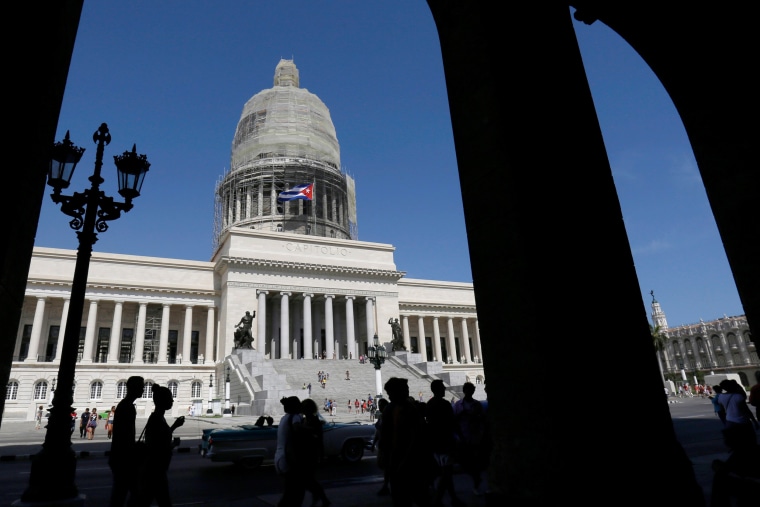One of Cuba's top diplomats said the United States is seeking to break diplomatic relations — something the island's communist government doesn't want.
"There are powerful people today in the U.S. government that would want to increasingly apply hostile measures and to sever our bilateral relationship. If that were to be the case, we are ready to face that reality," Carlos Fernández de Cossío, the Foreign Ministry's general director for U.S. affairs, said Monday outside a U.S.-Cuba academic conference in Havana.
Fernández de Cossío said severing relations "is not what the people of Cuba want. It's not what the government of Cuba is seeking. And, again, we know it's not what the people of the United States would want."
The State Department didn't immediately respond to a request for comment.
The United States has said it is using sanctions to hold Cuba accountable for its support of Venezuelan President Nicolás Maduro, whose country is roiled in economic and political turmoil. Vessels carrying Venezuelan oil to Cuba have come under sanctions. It has also cited Cuba's human rights record for the use of sanctions. One of Cuba's top dissidents, Jose Daniel Ferrer, has been in jail since early October, and the State Department has called for his release.
Tuesday marks five years since former President Barack Obama announced that full diplomatic relations with Cuba would be restored after more than a half-century of hostility. Embassies were opened in 2015, travel and trade restrictions were eased, and U.S. travel to the island flourished.
Some in the Cuban exile community criticized the deal, saying the United States didn't much much in return for the concessions.
Two years later, Donald Trump was elected promising a better deal with the island. But so far, the Trump administration has only tightened the embargo. Travel restrictions that were loosened under Obama's administration were reimposed, cruise ships were once again banned from docking on the island, and Americans whose properties were confiscated after the 1959 Cuban revolution are now allowed to sue any foreign companies profiting from those assets in U.S. courts.
"One only needs to hear statements by the officials of the U.S. government to understand that their aim is to continue to apply economic coercive measures to punish the lives of Cubans, of ordinary Cubans," Fernández de Cossío said. "So it is easy to come to the conclusion that the aim is to sever the relationship."
Follow NBC Latino on Facebook, Twitter and Instagram.


